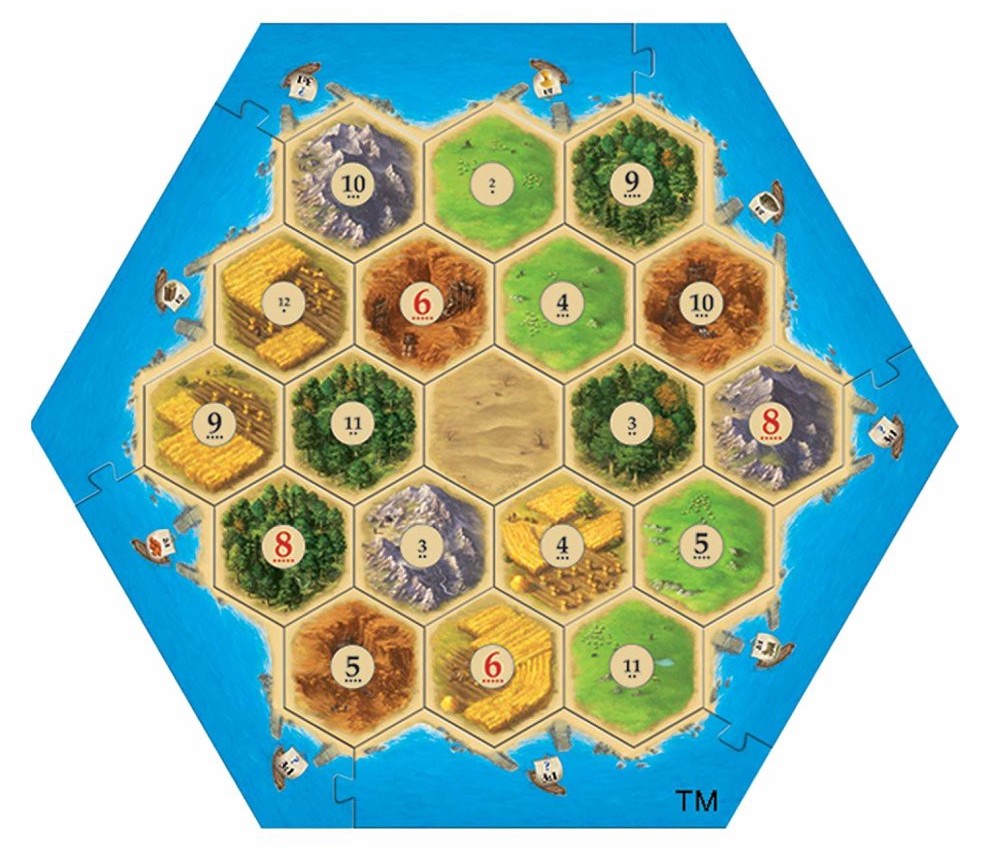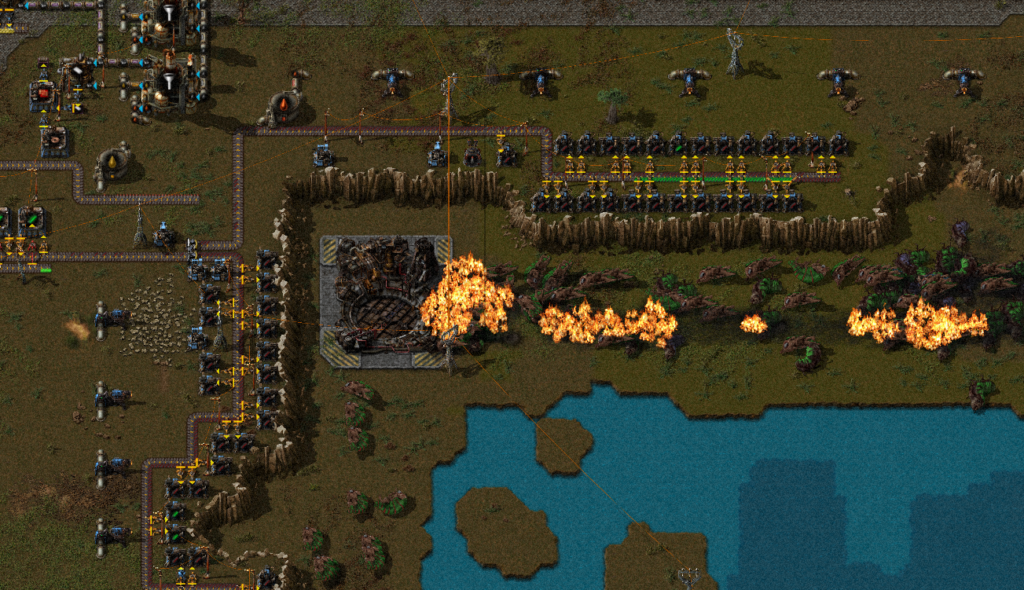4X refers to a sub-genre of strategy games that typically involves building an empire or some sort of human social entity through exploration, expansion, exploitation, and extermination — hence the acronym ‘4X’. Typically, a player would start with a relatively ‘underdeveloped’ state or society with few resources, and then gradually expand its zone of control, gain resources, defeat rivals, and advance technologically. Examples of this genre include Sid Meier’s Civilization, all major Paradox Games (Victoria, Europa Universalis, Hearts of Iron, and Stellaris), and boardgames such as Settlers of Catan. They usually coincide heavily with genres such as Real Time Strategy, Turn-based Strategy, and Grand Strategy, and historical simulation, but I would argue that other city-building or development-simulating games would also fall to some extent into this schematic, including SimCity, Factorio, Stardew Valley, or even Minecraft (in certain playstyles).
In the spirit of the reading I will first give a brief history of the genre. Multiple sources on the internet attribute its origins to1.the boardgame Settlers of Catan (1995) and 2.the computer game Reach for the Stars (1983) (1). In Catan, players play as settlers on an island developing their respective colonies, taking land (which produces resources) and strategizing the allocation of these resources. What is worthy of note here is that we see immediately a colonizing narrative that borrows from Westerns — exploring and exploiting a newfound piece of land, which will recur throughout other games of the genre. In Reach for the Stars (1983), which is one of the first computer 4X games, players gain an initial star system and expand and colonize others while competing for resources. What is interesting her is the sci-fi trope that it borrows, fantasizing outer space as basically a new frontier for humanity to expand into. Reach for the Stars similarly arose from a tense Cold War era as with other science fiction games, which perhaps shaped its competitive and militaristic elements. At the eve of the Cold War, Sid Meier’s Civilization (1991) took center stage. It introduced heightened details such as more detailed and mechanized diplomacy (whereas in Catan, for example, diplomacy is not a specific mechanic but require players to interact with each other) and others, but also the idea of a historical simulation. Its historicity is also quite nuanced and problematic, but that would require a separate blog post.

The central criticism I wish to raise of this genre after engaging with it substantially is therefore the almost complete absence of a Real, natural environment, or, more specifically, a representation of the natural environment that takes into account the extremely detrimental impact of unsustainable human behavior in the course of human social development. It embodies a capitalist-imperialist spirit of ceaseless expansion and resource accumulation without any representation of the existence of externalities, whether they be environmental or social.
In most of the 4X games that I know of, the natural environment exists only as an object to be exploited. Of course, many games incorporate environmental limitations, say, this colony will only have this many of this resource, or you’re not allowed to build on tiles labeled as a desert, or there might be an event of a natural disaster that produces an debuff. Nevertheless, the environment as its own system that could very well be destabilized by human behavior is never represented as a fleshed out in-game entity that the player has to actively consider or interact with. In Stellaris (2016), for example, each colony will have this amount of resources, but once you build a special building there the production will never cease and will produce no visible negative consequences to the player empire’s economy. The natural environment exist as discrete ‘planetary features’ or resource blocks that the player has to either clear or exploit.
In Factorio (2016), the player plays as colonist planning and developing an extensive network of automated machines that extract resources for additional expansion, while fending off bug-like native life forms — another typical science fiction tropes with examples such as Starship Troopers and which the Ender’s Game Trilogy is also a response to. Needless to say, it similarly promotes a view of nature as something that can be infinitely exploited, and views native life as a part of that environment which must be defended against.


So what would an environmentally responsible 4X game look like? To begin with a proceduralist suggestion, environmental consequences of development should be incorporated into a substantial negative feedback loop that affects the player and that will force the player to consider when making choices. An educational game might take up the environment as the avatar and force the player into an unlikely identification.
A side note: There are also lots to discuss regarding the problem of ideology and ethics in these simulation games. For ex. In Stellaris class conflict is actually represented, but in a very politically innocent gesture. Players in these games can fetishize and carry out atrocities like planetary genocide without much consequence and memes are frequently made from these practices.
Another side note: Theorists like Alexander Galloway also raised the question of how exactly we should perform critiques of games. In his essay “Allegories of Control” Galloway argued that the central critique of games should be directed at their algorithmic nature of control. He argues that when we critique Civilization for instance, it should most importantly be directed at its reduction of history into code, and not its specific historicity or environmental perspective per se (this is a very crude understanding of his argument, I hope the professors can correct me if I’m wrong). This means that, say, an environmentally aware Civilization should also be criticized. I’m interested in hearing what you guys think about this (this question might deserve another post as well)
Works Cited:
Zezulin, Alex. “The History of 4X”, making games, https://www.makinggames.biz/feature/the-history-of-4x,13533.html (Accessed Oct 6, 2021).
“4X”, Wikipedia, https://en.wikipedia.org/wiki/4X#cite_note-gamespyHistory-57 (Accessed Oct 6, 2021).


Good job introducing the genre! I always wondered where the term 4x came from.
One of the big issues, I think, with making the environment dynamic in that way is that it punishes the player for exploiting it… seemingly punishing the players for doing something that the game encourages them to do. That isn’t to say balancing the environment couldn’t be a good gameplay mechanic, but it runs at odds with the overall theming of expansion.
I think this might have been what Galloway was referring to in your last remark: even if a 4x game could be more environmentally sensitive, would that mechanic undermine the rest of the game? Would requiring such consequences for your actions ruin the overall experience of the genre? Or is it the case that the current model of 4x games is not doomed to be insensitive by its core mechanics and goals?
I definitely agree and my idea was a very primitive suggestion. Since many 4X games are also simulation of how human societies have in reality functioned historically, it would be challenging to contradict that. Hence my suggestion that 4X games harbors a sort of innate tendency to be environmentally irresponsible is humans have always been environmentally irresponsible.
Contrary to what you claim, there are 4X games that implement the environmentalist perspective to their gameplay loop (albeit unsuccessfully in my and many reviewer’s opinions)
1) Sid Meier’s Civilization VI has a late-game mechanic related to climate change. Depending on the energy production modality of the player and other civilizations, they release a different amount of CO2 into the atmosphere. The game that’s the amount of CO2 released into account to determine the temperature change and the intensity of severe destructive climate effects that takes place. This mechanic forces the player to choose between fast-industrialization based on coal consumption, or the longer investment into building up renewable energy infrastructure. There is also the question raised about the disparity between who causes climate change vs who gets affected: a fast-industrialized nation can build flood barriers to prevent its coastal cities from getting swallowed by rising ocean levels, but a civilization with less resources and technology can get devastated by the consequences of the CO2-realeasing civilization’s actions.
2) Humankind attempts a similar, but less successful, “pollution” mechanic. Over time, especially in the late game, the damage done by players to the environment reduces the happiness, stability, health & productivity of the people that are inhabiting that environment. It forces the player to re-think the same age-old question: fast-paced yet environmentally exploitative progress, or slow but environmentally conscious development.
Interesting! It’s good to see that there are at least attempts; Especially the section on climate justice (who get’s affected) that you mentioned got me thinking if the game based on this sort of competition (which simulated real human reality) could procedurally implement an environmentally just alternative.